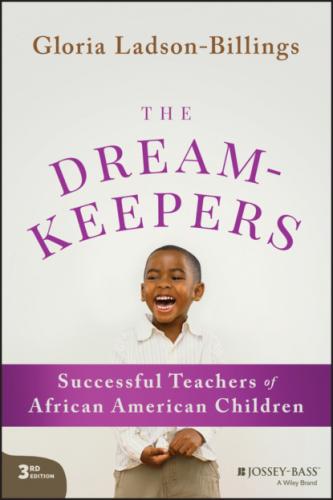26 26. Cohen, E., and Benton, J. “Making Groupwork Work.” American Educator, Fall 1988, pp. 10–17, 45–46.
27 27. Ladson-Billings, G., “Who Will Teach Our Children,” pp. 129–142.
28 28. Bloom, B., Davis, A., and Hess, R., Compensatory Education.
29 29. Bettelheim, 1965; Ornstein and Vairo, 1968; Ornstein, 1971; Doll, R., and Hawkins, M., Educating the Disadvantaged. New York: AMS Press, 1971; Hyram, G., Challenge to Society: The Education of the Culturally Disadvantaged Child, Vol. 1, New York: Pagent-Poseidon, Ltd., 1972.
30 30. Mitchell, J. “Reflections of a Black Social Scientist: Some Struggles, Some Doubts, Some Hopes.” Harvard Educational Review, 1982, 52, 27–44.
31 31. Cuban, L. “The ‘At-Risk’ Label and the Problem of Urban School Reform.” Phi Delta Kappan, 1989, 70, 780–784, 799–801.
32 32. Hollins, E. R. “A Reexamination of What Works for Inner City Black Children.” Paper presented at the annual meeting of the American Educational Research Association, Boston, Mass., April 1990.
33 33. Levine, D., and Stark, J. “Instructional and Organizational Arrangements that Improve Achievement in Inner-City Schools.” Educational Leadership, Dec. 1982, pp. 41–46.
34 34. Comer, J. “New Haven’s School-Community Connection.” Educational Leadership, Mar. 1987, pp. 13–16.
35 35. Hollins, E. R. “A Conceptual Framework for Selecting Instructional Approaches and Materials for Inner City Black Youngsters.” Paper commissioned by the California Curriculum Commission Ad Hoc Committee on Special Needs Students, Sacramento, Calif., March 1989, p. 15.
36 36. Cummins, J. “Empowering Minority Students.” Harvard Educational Review, 1986, 17(4), 18–36.
37 37. Au, K., and Jordan, C. “Teaching Reading to Hawaiian Children: Finding a Culturally Appropriate Solution.” In H. Trueba, G. Guthrie, and K. Au (eds.), Culture and the Bilingual Classroom: Studies in Classroom Ethnography. Rowley, Mass.: Newbury House, 1981, 139–152.
38 38. Hollins, E. R. “The Marva Collins Story Revisited.” Journal of Teacher Education, 1982, 32(1), 37–40.
39 39. See, for example, Fordham, S., and Ogbu, J., “Black Students’ School Success: Coping with the Burden of ‘Acting White,’ ” The Urban Review, 1986, 18(3), 1–31; Bacon, 1981; McLaren, P., Life in Schools: An Introduction to Critical Pedagogy in the Foundations of Education. White Plains, N.Y.: Longman, 1989.
40 40. Kohl, H. I Won’t Learn from You! The Role of Assent in Learning. Minneapolis: Milkweed Editions, 1991.
41 41. See Hirshberg, C., “Bayton’s Boys Do the Right Thing,” Life, Sept. 1991, pp. 24–28, 30, 32; and Holland, S., “Positive Primary Education for Young Black Males,” Education Week, Mar. 25, 1987, 6, 24.
42 42. Eisner, E. “The Art and Craft of Teaching.” Educational Leadership, 1982, 40, 4–13.
43 43. Giroux, H., and Simon, R. “Popular Culture and Critical Pedagogy: Everyday Life as a Basis for Curriculum Knowledge.” In P. McLaren and H. Giroux, (eds.), Critical Pedagogy, the State, and Cultural Struggle. Albany, N.Y.: State University of New York Press, 1989, 236–252.
Конец ознакомительного фрагмента.
Текст предоставлен ООО «ЛитРес».
Прочитайте эту книгу целиком, купив полную легальную версию на ЛитРес.
Безопасно оплатить книгу можно банковской картой Visa, MasterCard, Maestro, со счета мобильного телефона, с платежного терминала, в салоне МТС или Связной, через PayPal, WebMoney, Яндекс.Деньги, QIWI Кошелек, бонусными картами или другим удобным Вам способом.
